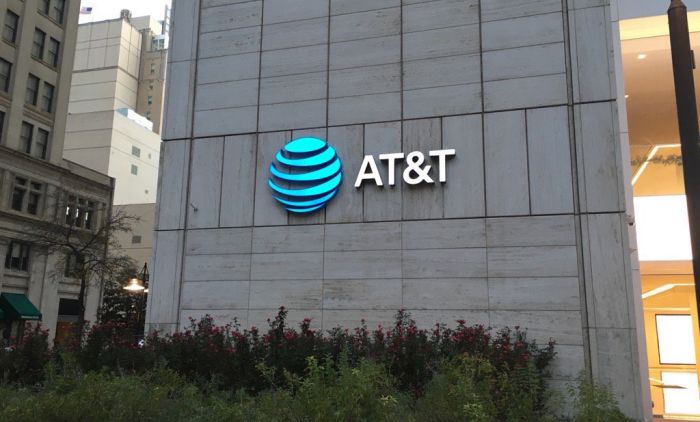AT&T’s acquisition of Time Warner continues to make waves; a New York federal judge says the entire Consumer of Financial Protection Bureau needs to be eliminated; the Koch Brothers are enlisting sophisticated data tool to fight against public transit; and which private contractors stand to benefit from the administration’s immigration policies?

- A week after AT&T’s acquisition of Time Warner won court approval, the Financial Times’ Rana Foroohar writes that the ruling “illustrates a new and confusing swirl of politics around antitrust and monopoly power.” She adds: “It’s also worth remembering that AT&T/Time Warner isn’t the problem, so much as the symptom of 20 years of screwed up and very political antitrust policy. The Obama administration in particular was literally and cognitively captured by Big Tech.” Meanwhile, AT&T is wasting no time capitalizing on its new assets, unveiling two new phone plans bundled with more than 30 television channels, many of them Time Warner’s. This, points out David Dayen in The New Republic, is exactly what the government, in its attempt to block the merger, argued AT&T was going to do: lessen competition by “leveraging Time Warner’s ‘must-have’ television content to drive rival customers to its products.”
Also, in case you missed them, catch up on Chris Sagers’ and Randy Picker’s takes on the decision to approve the merger.
- A New York federal judge threw out a CFPB lawsuit against a New Jersey company accused of scamming millions of dollars out of 9/11 first responders, ruling on Thursday that the very structure of the Consumer Financial Protection Bureau is “unconstitutional” and opining that the CFPB should be eliminated entirely. Ian Millhiser analyzes the decision, which is sure to add fuel to the fight over future of the CFPB.
- Two weeks after a New York Times editorial made the case for breaking up Facebook, a Boston Globe editorial makes a case for breaking up Google: “Washington has been slow to recognize that Google’s power is a problem, much less embrace the obvious solution: breaking the company up.”
- The European Union is moving ahead with its controversial Copyright Directive, a new legislation that would require Internet companies to filter content their algorithms identify as a copyright violation. The directive’s critics, such as World Wide Web inventor Tim Berners-Lee, argue that it would turn the Internet “into a tool for the automated surveillance and control of its users.” Nevertheless, the EU’s Legal Affairs Committee (JURI) voted in favor of the legislation this week.
- From The Nation: How private contractors—private-prison groups and Fortune 500 companies—profit off of enabling Trump’s “zero-tolerance” immigration policy. OpenSecrets has also analyzed the billions in federal contracts granted to private companies involved in implementing the administration’s immigration programs. “Trump’s hardline approach to illegal immigration,” it concludes, “is a boon for private prisons and security companies.” And the Wall Street Journal reports on the “flurry of contracts and grants” awarded by the government to private companies and nonprofits to run detention facilities for migrant children.
- In the New York Times, Hiroko Tabuchi writes about the Koch Brothers’ attempts—through their political arm, Americans for Prosperity— to fight against public transit in cities and counties across the country in order to promote their oil business. In Nashville, for instance, Koch-financed activists were reportedly able to derail a popular $5.4 billion transit plan. “At the heart of their effort is a network of activists who use a sophisticated data service built by the Kochs, called i360,” she explains. This powerful technology “profiles Americans based on their voter registration information, consumer data and social media activities.”
- The Supreme Court ruled that states can collect taxes from online retailers. The Atlantic’s Alana Semuels gives a rundown of what this ruling could mean for consumers and for online shopping. The Los Angeles Times, meanwhile, hails the decision for striking “an important blow for fairness.”
- In The Guardian, Ganesh Sitaraman makes a case for reviving the Glass-Steagall Act as a tool to fight market power: “We can think of a modern Glass-Steagall as something like a ban on mergers that create conglomerates.”
- In the Financial Times: Martin Sandbu writes about why capitalism works better in Europe. Citing a new study by Germán Gutiérrez and Thomas Philippon, he writes: “The US has allowed its markets to become ever more rigged.”
- The Columbus Dispatch has spent the months investigating how pharmacy benefit managers drive up health care prices in Ohio. Now, an Ohio Medicaid audit confirms many of its findings, finding that PBMs managing Ohio Medicaid’s prescription drug program “billed taxpayers 8.8 percent more for medications than they paid pharmacies.”
For more on PBMs, read Craig Garthwaite and Fiona Scott Morton on how these under-discussed components of America’s health care system drive up prices.
- Colombia has a new president-elect: Ivan Duque, the candidate hand-picked by ex-president Alvaro Uribe Velez. Duque and Uribe mobilized uribistas with their opposition to the 2016 treaty that ended the civil conflict with the FARC. (Steven Cohen gives some background at The New Republic.) A day after Duque’s election, the Colombian Congress defied a request from sitting president Juan Manuel Santos to approve a bill setting up the procedures for a transitional justice tribunal, provided for as part of the peace agreement. But in general—despite the political and economic risks that could emerge if the Duque administration walks back on the peace accords—markets are happy with the voters’ choice.
- Markets are also pricing in Mexico’s near-certain decision to elect the leftist firebrand Andres Manuel Lopez Obrador to replace president Enrique Peña Nieto on July 1. The Economist admits, “We worry about Mr López Obrador’s presidency, but wish him luck.” (Read UNAM law professor John Ackerman’s ProMarket op-ed in support of AMLO here.)
- Also at The New Republic, Matthew Chitwood reports on Chinese farmers’ reaction to Trump’s tariff campaign. This week saw both China and the EU announce new retaliatory tariffs against the United States.
Stigler Center Goings-On
- Should a kidney be sold to the highest bidder? In the latest episode of Capitalisn’t, Luigi Zingales and Kate Waldock debate Nobel-winning economist Al Roth whose algorithm for kidney transplants has saved more than 6000 lives. Roth says matching markets could be used for everything from online dating to the global refugee crisis.
- Applications for the 2018–19 Stigler Center PhD Dissertation Award, Visiting Researchers Program, and Research Funding are now open through June 30. More details available here.
Disclaimer: The ProMarket blog is dedicated to discussing how competition tends to be subverted by special interests. The posts represent the opinions of their writers, not necessarily those of the University of Chicago, the Booth School of Business, or its faculty. For more information, please visit ProMarket Blog Policy.






